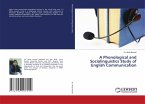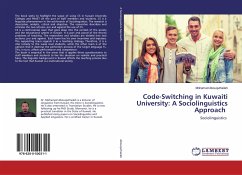The present workis an attempt to study the language of chatting of native and non-native speakers of English. It tackles language of chatting from sociolinguistic point of view. Precisely, it attempts to achieve the following aims: (1) finding out the linguistic structures that make up language of chatting in terms of orthographical, lexical and paralinguistic features; (2) Identifying the influence of some of the social variables like gender, nationality and education on the linguistic choices of language used in chatting; (3) Finding out differences in the use of abbreviations, capitalizations, emoticons, punctuation marks and repetition in chatting used by native and non- native speakers; (4) finding out the effects behind non-native students use of emoticons, abbreviations, capitalizations, punctuation marks and repetition in online communication on their writing habits; and (5) Finding out the motivations behind the participants use of chatting and how these motivations varyaccording to the effects of the social variables.
Hinweis: Dieser Artikel kann nur an eine deutsche Lieferadresse ausgeliefert werden.
Hinweis: Dieser Artikel kann nur an eine deutsche Lieferadresse ausgeliefert werden.








